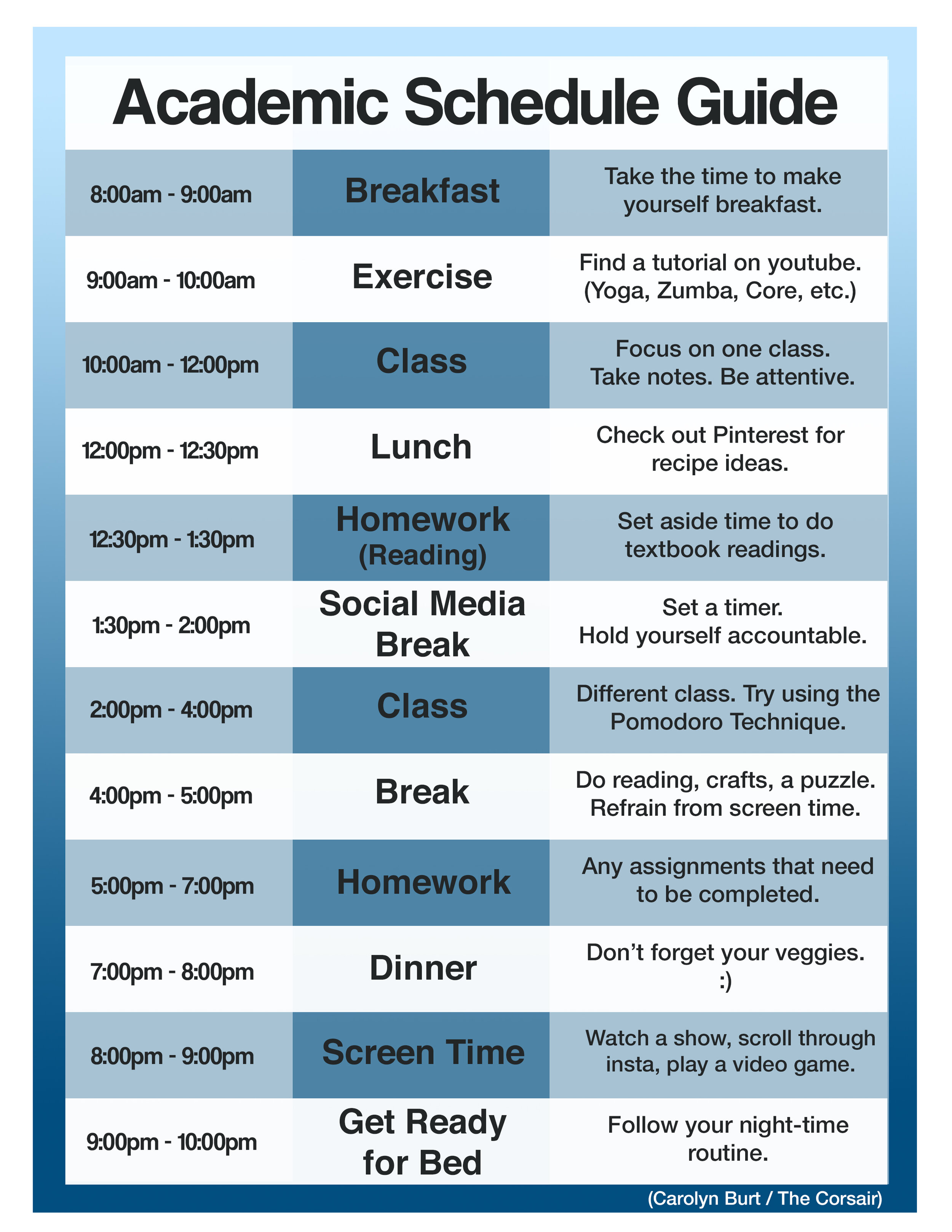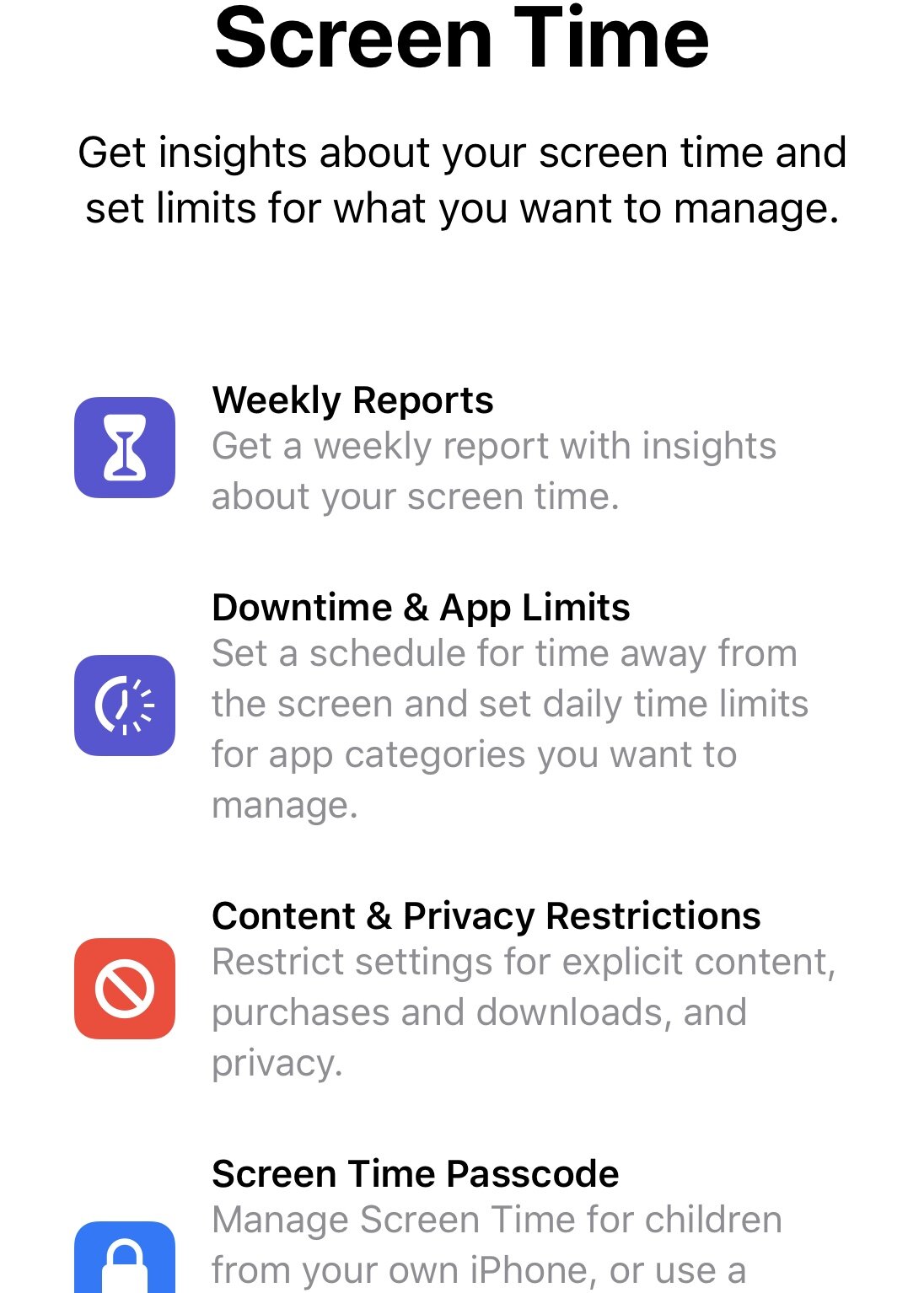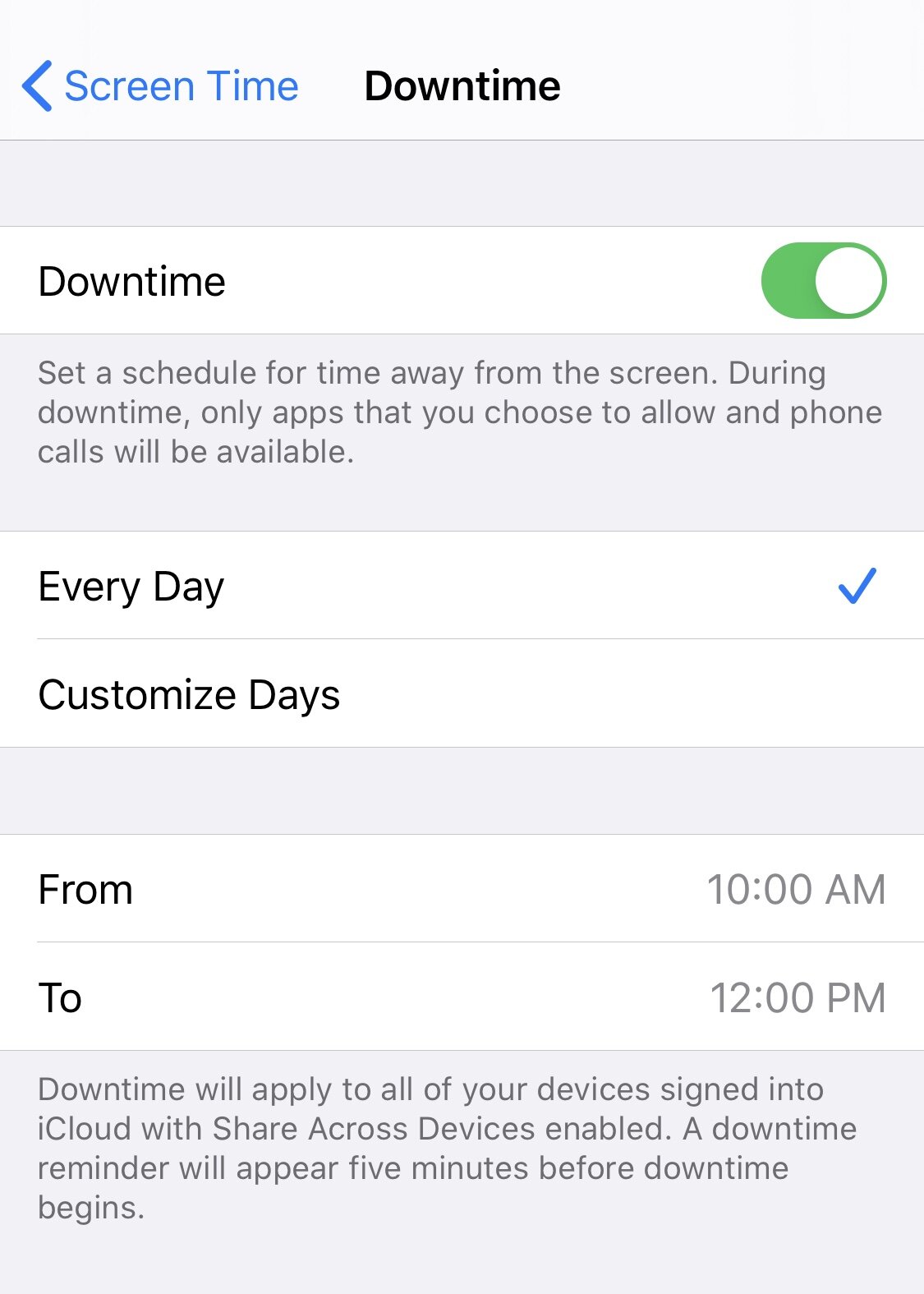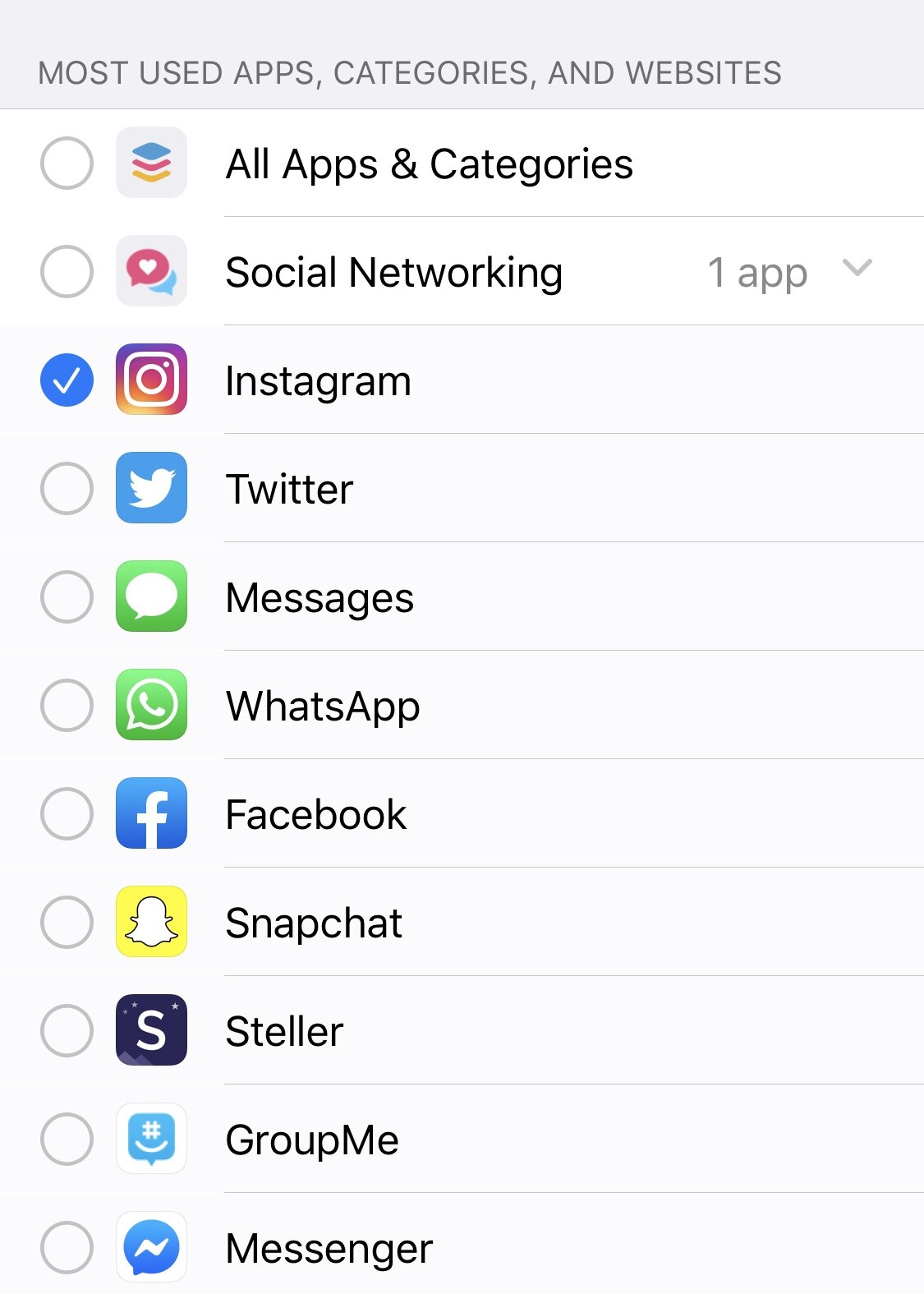How to Succeed in Your Online Classes
Illustration by Carolyn Burt
Many of us are in the same boat right now, having to adapt to the world of online classes.
For those of us who take our classes in person out of preference, this switch might seem stressful, or even have you debating if it’s better to drop your class and try again next semester. Before you make that call, here’s some tips that will better help you navigate this different structure.
For starters, stay on schedule. College in general is typically a transitional period for young adults in navigating adolescence and adulthood. Many have had a parental figure holding them accountable for such things as doing their chores, taking them to class, and making meals for them, to now realizing they need to be the one responsible for staying on top of things. Since your classes might no longer have to meet at the time you typically showed up for class (though it’s likely some will switch to live lectures or conference calls through “zoom”), having a structure to your day will likely help things seem a little less overwhelming.
Be patient with yourself. Chances are you won’t follow this schedule to a tee; reassess, readjust, figure out what works for you. Don’t give up on yourself just because you got a late start.
With that, stick to your usual sleep schedule if you can, try not to stay up too late or sleep in more than you usually would on a weekday. You can also make use of the time you would spend commuting to class to make yourself meals.
While you should dedicate chunks of time to your school work, try splitting it up, like with the Pomodoro Technique. This technique recommends focusing on an assignment or task for 25 minutes, followed by a five minute break, and then returning back to the task for another 25 minutes followed by another five minute break. The break shouldn’t be used to check your phone though, use it as an opportunity to stretch, walk around, grab some water, and then return to your work with a clearer mind.
Below is a template for an Academic Schedule you can follow each day to help you find your balance of class time and self care.
Visual Aid by Carolyn Burt
Which brings us to the next advice, limit your screen time. In this digital age this can be very challenging, with notifications popping up from messages and apps, and a sense of FOMO if you don’t check your phone every five minutes. You’ll quickly realize how much easier it is to focus on your task at hand if you eliminate that distraction though. In fact an Irvine study showed that “it takes an average of 23 minutes and 15 seconds to get back to the task.”
If you’re someone who knows you won’t be able to practice this restraint on your own, that’s okay, luckily in this digital age there are many apps available to help with this. Apple for instance offers “Screen Time” in your settings which allows for “Downtime” where you can control app limits for the day during certain times. You can also set your phone on “Do Not Disturb” which will prevent your phone from alerting you each time you get a notification, but still let you see the notifications when you do decide to check your phone. If you want to limit the distraction of your phone all together, you can put your phone in another room so that you aren’t even tempted to look at it.
Another way to help your mind adjust is to create a space to be your study zone. Whether it be a seat at your dining table or a spot on the couch, have a set area that when you go to it, you’re there to focus. It can be incredibly tempting to just keep yourself planted in your bed all day in your pajamas, covered in blankets, but you’ll find you not only have a harder time studying, but falling asleep later as well. Also use this as an opportunity to let your roommates and family know when you’re in this area, you’re studying, and not to distract you. Even put up a “Do Not Disturb” sign if you feel it’s necessary.
Listening to classical music has also been shown to help with focusing. If you’ve tried studying in a coffee shop before, you know how distracting the chatter can be. Listening to this instrumental music helps to eliminate the noise around you while also calming you. There’s plenty of playlists out there on different streaming services and Youtube, in fact while writing this article I had this one playing in the background.
Be prepared for Technical Difficulties. Professors like to use the phrase “the DUE date is not the DO date” for a reason. Plan to do your homework in advance, and submit it when it’s ready. Chances are your internet will run slow, or there'll be a surge on the site around the 11:59pm deadline, so plan ahead and submit it as soon as you’re ready to to put your mind at ease.
Don’t be afraid to ask for help. Your professors are going to be very understanding during this time, but they’re not going to know how to accommodate if you don’t inform them that something isn’t working. Asking for help is actually a strong indicator of success. It shows you’re genuinely trying and your professors will appreciate that.
Participate in discussion threads. Participation points are still a thing online, so take part where you can. Keep the conversation going with fellow students about the topics you’re learning about. It’ll help you all get a better understanding of the subject material. Also when you participate in discussions make sure you’re using proper spelling in grammar. You might be used to using abbreviations like “lol” or “u” instead of “you” in text messages, but refrain from doing so in this classroom setting.
Finally be patient with your professors. Just how you enrolled in classes in person for a reason, they choose to teach in person for similar ones. Many of them might not be prepared for this digital age and are just learning how to use different sites such as Canvas and Zoom. It is also a completely different arena to go from conducting a lecture to a class to doing one via webcam. If you think you can be of assistance to your professor, reach out to them to offer guidance.
Help your classmates out as well when you can, if they can’t find a discussion or where to submit an assignment, send them the link. Allow this to be an opportunity to contribute, to be patient, and to be helpful. Your professors want to do well for you; there might be some bumpy classes along the way, but they’ll get better as they get into the swing of it.
This isn’t the way any of us anticipated this semester to go when we enrolled in classes last fall. It might be a struggle at times, but know that you’re not alone. Take care of yourself, and try to find normal where you can.














